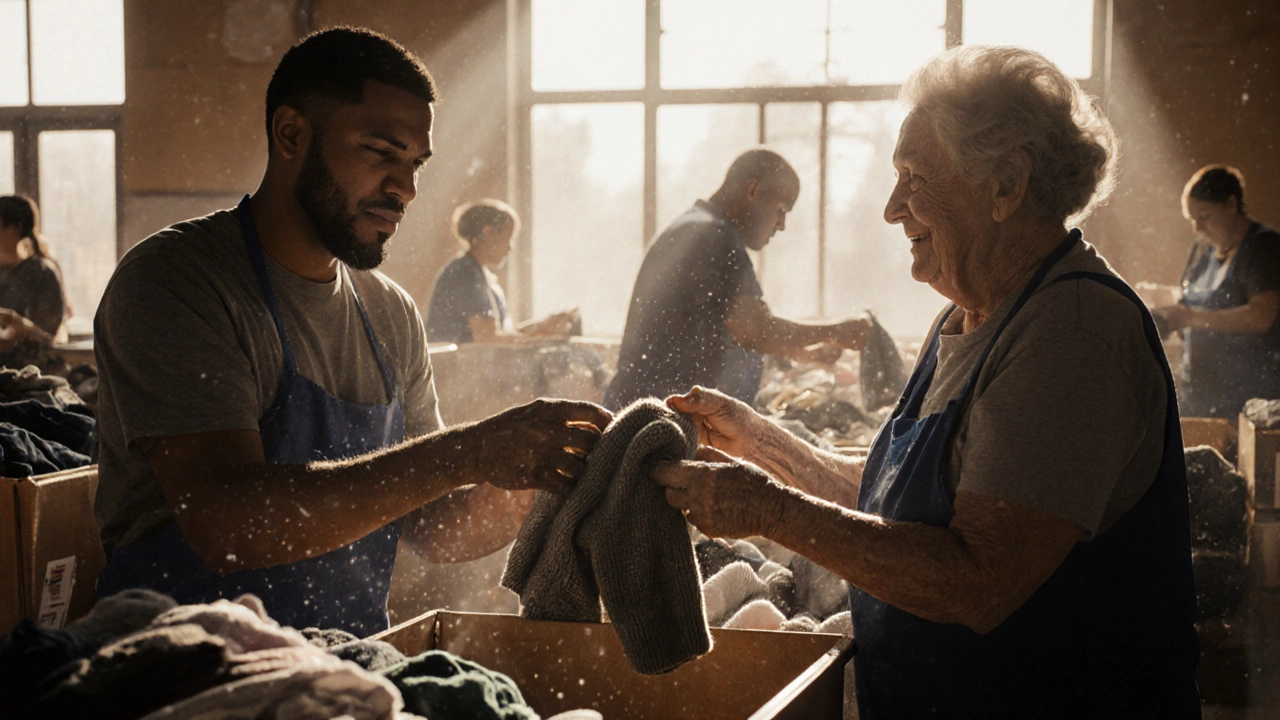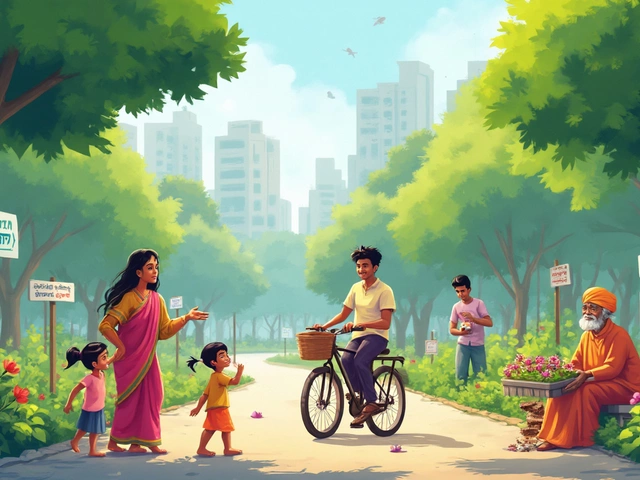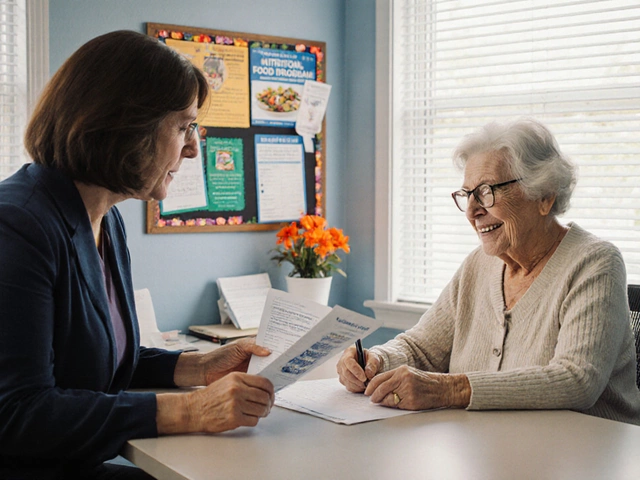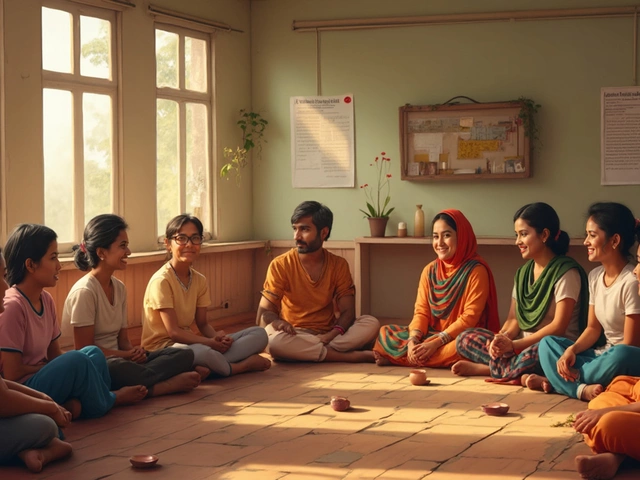Volunteer Impact Calculator
See how your volunteer time creates real change in your community. Even small commitments add up to meaningful impact.
Your Impact
Over the next 6 months
Your time helps build stronger communities. Even small commitments create meaningful change.
Why Your Time Matters
Just 1 hour per week makes a difference:
- 1 hour 4 meals served at a food bank
- 1 hour 30 minutes of tutoring for a child
- 1 hour 10 plants planted or 25 pounds of trash collected
Ever looked at someone helping out at a food bank, tutoring kids after school, or cleaning up a park and wondered if it’s really worth it? Not just in time, but in how it changes you? The truth is, volunteering isn’t just about giving back-it’s one of the most powerful ways to grow, connect, and feel like you belong.
You don’t need to save the world to make a difference
People often think volunteering means committing to months of work or traveling halfway across the globe. That’s not true. A single afternoon sorting clothes at a shelter, reading to a senior once a week, or helping organize a neighborhood clean-up counts. You don’t have to be an expert. You don’t even have to like every task. What matters is showing up.Volunteering works because it’s human. You meet people you wouldn’t normally talk to. You see problems up close-not through a news headline, but through the eyes of someone who lives it. That changes your perspective. One woman in Cincinnati started volunteering at a homeless shelter because she felt guilty she had too much. Six months later, she was running a job readiness program for residents. She didn’t set out to start a program. She just showed up.
It’s good for your mental health-no therapy required
A 2023 study from the University of Michigan tracked over 1,200 adults who started volunteering for the first time. After just three months, 78% reported lower stress levels. 65% said they felt less lonely. 52% noticed improved sleep.Why? Because helping others shifts your focus away from your own worries. When you’re folding blankets for a shelter or teaching a kid to read, your brain stops replaying that stressful email or that argument from last night. You’re present. You’re needed. That feeling-being useful-is a natural antidepressant.
And it’s not just about feeling better. It builds resilience. Volunteers who help during disasters or crises often say they feel more capable afterward. Not because they fixed everything, but because they learned they could handle hard things. That confidence sticks.
You’ll learn skills you can’t get from a textbook
Think about what you actually do when you volunteer. You coordinate a team of 10 people to distribute meals. You explain complex forms to someone who doesn’t speak English. You manage a donation bin, track inventory, deal with last-minute cancellations. These aren’t fluffy tasks. These are real-world skills.One high school student in Austin volunteered at an animal rescue. She started by cleaning cages. By her senior year, she was managing the adoption process, training new volunteers, and writing grant applications. She didn’t take a single business class. But she walked into college interviews with stories that impressed admissions officers more than any AP score.
Volunteering teaches communication, problem-solving, leadership, and adaptability. Employers notice that. A 2024 LinkedIn survey found that 41% of hiring managers are more likely to call back a candidate who lists volunteer work-even if it’s unrelated to the job.

It connects you to people who matter
Loneliness is a silent epidemic. More than 1 in 3 adults in the U.S. say they often feel isolated. Volunteering is one of the few places where you’re guaranteed to meet people who care about the same thing you do-whether it’s animals, kids, the environment, or justice.You don’t have to be best friends with everyone. But when you show up week after week, you build trust. You start knowing people’s names, their stories, their quirks. That kind of connection doesn’t happen on Instagram. It happens when you’re standing side by side, sorting donations, and someone says, “I’ve been coming here for ten years. You’re the first person who asked me how my granddaughter is doing.”
These relationships become anchors. In times of crisis-when you lose a job, when you’re sick, when life feels heavy-those people show up too. Volunteering builds community, not just for others, but for you.
It gives you a sense of purpose
Purpose isn’t something you find in a journal or on a retreat. It’s built through action. When you volunteer, you see the direct result of your effort. The child reads a whole book. The garden grows. The dog gets adopted. The family eats tonight.That kind of tangible impact is rare in modern life. Most of us work in jobs where we don’t see how our day matters. Volunteering fixes that. You don’t need to change the world. You just need to change one small thing-and know you did it.
One retired teacher in Ohio started tutoring kids in math every Tuesday. She didn’t think she was doing anything special. Then one of her students, a girl who had failed math three times, got into a STEM program. The girl wrote her a letter: “You didn’t just teach me fractions. You taught me I could be someone.” That’s purpose. It doesn’t come with a medal. But it stays with you.
It’s not always easy-but that’s the point
Let’s be honest. Volunteering isn’t always fun. Sometimes you’re tired. Sometimes the work is messy. Sometimes you show up and nothing goes right. You might feel useless. You might cry. You might question why you bother.That’s normal. And that’s where the real growth happens. You learn patience. You learn to show up even when you don’t feel like it. You learn that progress isn’t linear. You learn that you’re stronger than you think.
One man in Detroit started volunteering at a youth center after his son died. He didn’t know why he went. He just needed to be around people. Months later, he was coaching basketball. A year after that, he was mentoring teens who had lost parents. He didn’t set out to heal. He just showed up. And slowly, he did.

Where to start (and how not to quit)
If you’re thinking about volunteering, don’t overthink it. Start small. Pick one thing that matters to you. It could be:- Reading to kids at the library once a week
- Helping at a community garden on weekends
- Driving seniors to doctor’s appointments
- Sorting donations at a thrift store
- Helping set up chairs at a local event
Don’t pick something that sounds impressive. Pick something you can actually stick with. Commit to just four hours a month. That’s less than an hour a week. If you hate it after a few weeks, try something else. No guilt. No pressure.
And if you start and it feels right? Keep going. You don’t need to be perfect. You just need to be there.
Volunteering isn’t charity. It’s mutual.
The biggest myth about volunteering is that it’s one-way giving. It’s not. You give your time. You get back perspective, connection, confidence, and meaning. You don’t need to be a saint to volunteer. You just need to care enough to show up.People who volunteer don’t do it because they’re perfect. They do it because they’re human. And so are you.
Do I need experience to volunteer?
No. Most organizations train you on the spot. Whether you’re handing out meals, walking dogs, or helping with paperwork, they’ll show you what to do. The only requirement is willingness to learn and show up on time.
How much time do I need to commit?
It depends on you. Some roles take 2 hours a month. Others might be 10 hours a week. Start with what feels manageable-even 1 hour a week makes a difference. You can always increase later.
Can I volunteer if I have anxiety or depression?
Yes. Many people volunteer as part of their healing. Look for low-pressure roles like sorting donations, working in quiet spaces, or helping with outdoor tasks. You can also ask for a volunteer coordinator who understands mental health needs. You’re not broken-you’re brave for trying.
What if I don’t know what I’m good at?
That’s okay. Try a few different things. Help at an event one weekend. Help at a food bank the next. You’ll figure out what feels right. Don’t wait to feel ready. You’ll find your fit by doing, not thinking.
Is volunteering worth it if I’m not religious or political?
Absolutely. Most volunteer opportunities have nothing to do with religion or politics. They’re about people helping people. You don’t need to believe in a cause to believe in kindness. Showing up for someone in need is enough.
Next steps
If you’re ready to try volunteering, here’s what to do next:- Think of one issue you care about-animals, kids, hunger, the environment, seniors.
- Search for local organizations that help with that issue. Try Google or your city’s volunteer portal.
- Call or visit one place. Ask: “What’s the easiest way to start helping?”
- Go once. See how it feels.
- If it clicks, keep going. If not, try another.
You don’t need to change the world. You just need to be part of it.






